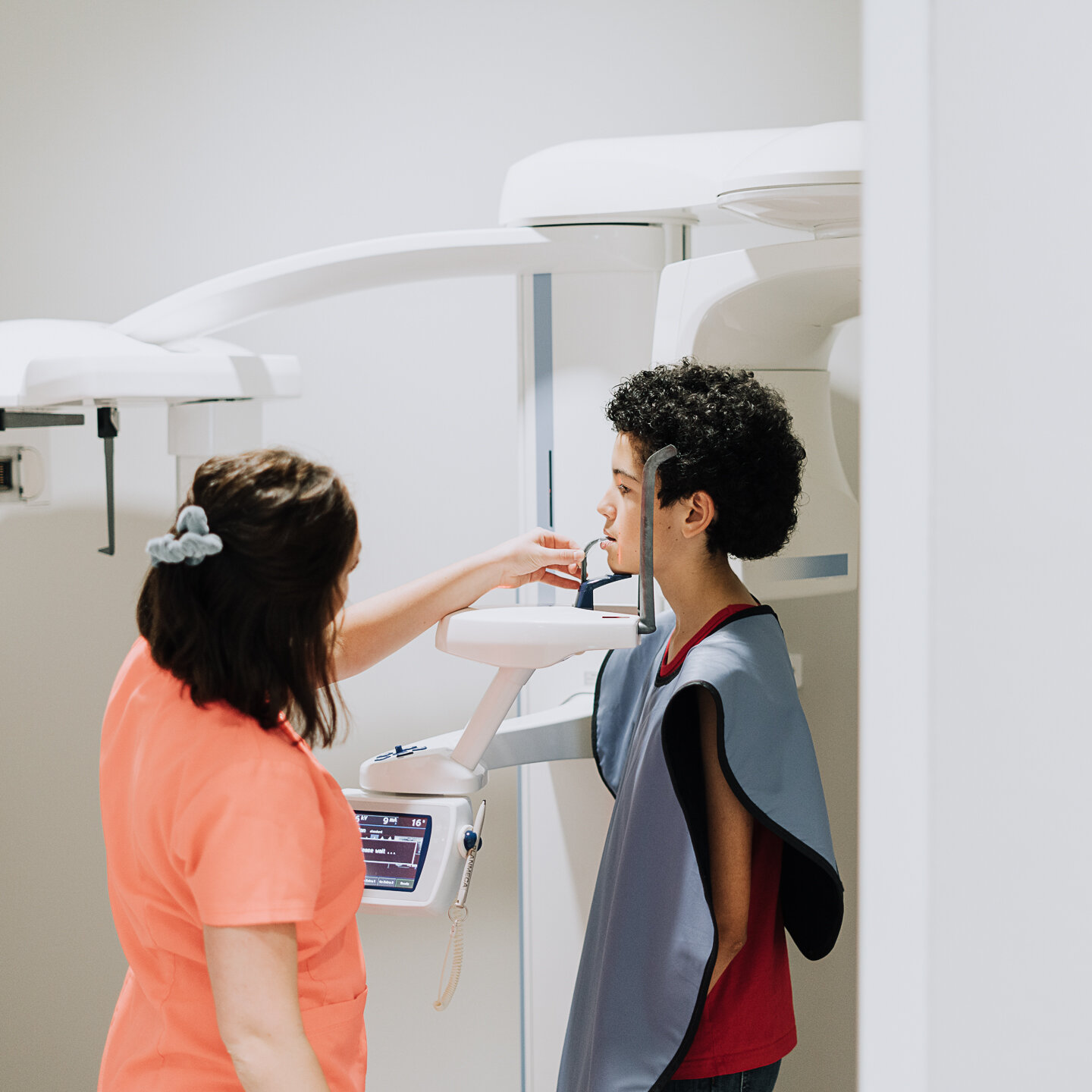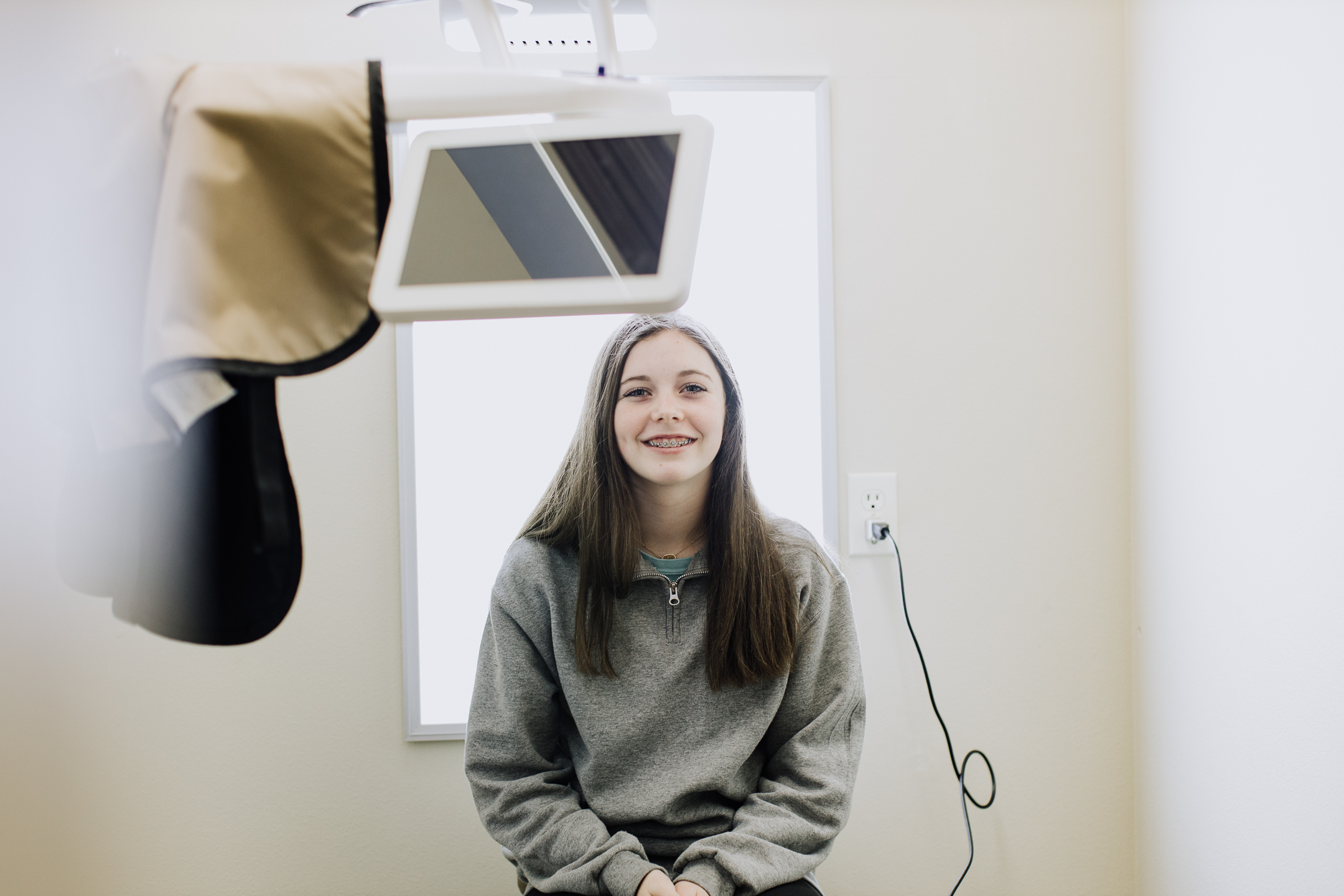A crossbite is a type of malocclusion, or a misalignment of teeth, where upper teeth fit inside of lower teeth. This misalignment can affect a single tooth or groups of teeth, involving the front teeth, back teeth, or both:

-
Posterior crossbite: If the back teeth are affected, upper teeth sit inside of bottom teeth.
-
Anterior crossbite: If the front teeth are in crossbite, one or more top teeth sit behind the bottom teeth. Not to be confused with an underbite, when all the top teeth, or jaw, are behind the bottom teeth
When teeth are lined up correctly, the upper teeth are naturally wider because they lay on the outside of the bottom teeth.
What causes a crossbite?
A crossbite can occur from genetics, delayed loss of baby teeth or abnormal eruption of permanent teeth, even prolonged actions like thumb sucking or swallowing in an abnormal way can generate damaging pressure. Teeth can be pushed out of place; bone can be distorted.
Why does a crossbite need to be fixed?
A crossbite may reveal an underlying jaw problem that is best addressed at a young age, while the face and jaws are still developing. Possible consequences if not corrected include:

-
the jaw shifting to one side
-
lopsided jaw growth
-
wearing down of outer layer of the tooth called “enamel”
How does an AAO orthodontist correct a crossbite?
Depending on the scope of the crossbite, treatment may involve the use of a palatal expander, a fixed or removable orthodontic appliance used to make the upper jaw wider. This would be used alongside an appliance designed to move the teeth, such as braces or clear aligners.
A trained orthodontic specialist knows when each method, or both, and can help you determine which is best for you.
